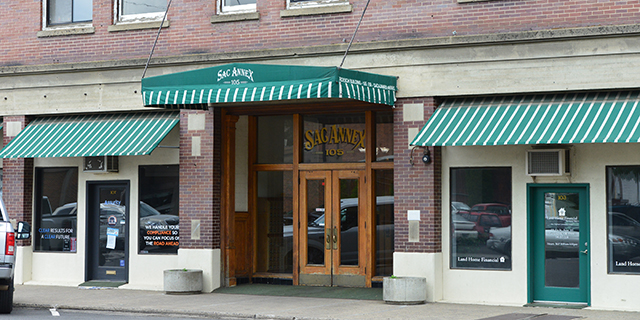Democrats: ‘The rich should contribute to the public expense’
Published 3:18 pm Friday, September 13, 2019

- Knop
How will Oregon’s new gross receipts tax impact small businesses and rural Oregon?
“It is not hard to make decisions when you know what your values are.” — Roy Disney
No aspect of state tax policy has been more controversial, or caused more discomfort for the rich, than allegations that some corporations, individuals and income groups don’t pay their fair share.
On Jan. 1, 2020, Oregon businesses and individuals with annual in-state revenues exceeding $1 million in revenues will begin paying the new Corporate Activity Tax (CAT). The Legislature through bipartisan negotiations and with no opposition by Oregon Business and Industry, the state’s largest business group, recognized what many Oregon businesses and residents already knew: “We were failing our children.”
In a U.S. News 2019 ranking of states report in Willamette Week based on how well states perform for their citizens, Oregon ranked number 27. This was a sharp decline from the 2018 Best States report, where Oregon was number 16. Oregon’s below-average rating is due to low rankings in education and opportunity. A rating that business and education leaders recognize as not good for Oregon, its business community and certainly not its citizens. One bright note: Oregon did place higher than most U.S. states in terms of infrastructure (energy, internet access and transportation) and economy.
Who benefits from the CAT gross
receipts tax?
Education — the new tax is expected to add upward of $1 billion to our schools and educational system. Clearly something that parents, teachers and school districts in Union County will use to elevate Oregon and our children’s chance at a better life.
Working families — this new law lowers tax rates for Oregon personal income taxes. Personal income tax rates, on average, will drop 0.25% across income tax brackets below $125,000 on Oregon-sourced income. This will directly benefit working people in Union County who needed relief.
Business — every industry, including insurance companies and financial institutions, will see their proportion of tax increase unless they are “excluded persons,” a term that covers governmental entities as well as certain nonprofits, hospitals and long-term care facilities. Protecting these services that provide medical care, nonprofits that support good causes and care facilities that aid and provide for those in our community with the greatest of needs was a priority and will continue to be under this new tax.
But, do not think for one second that businesses were not able to lobby our representatives in Salem to get some favorable terms from this new tax.
There are 43 types of excludable gross receipts under the CAT. Just to name a few: interest income (other than interest on credit sales); receipts from the disposition of IRC Sec 1221 and 1231 assets; dividends, partner/shareholder’s distributive share of income from a pass-through entity; sales to Oregon wholesalers who certify that the property will be resold outside of Oregon; and intercompany transactions among members of a unitary group.
In addition, there are special exclusions for many specific industries such as gas and fuel sellers, grocery stores, utilities, telecommunications service providers, heavy equipment providers, vehicle dealers and agricultural cooperatives. Clearly, your legislators understood where in our community those businesses that deal directly with consumers in product delivery and agriculture needed and should be excluded and did so by providing special exclusions.
In conclusion, I leave you with a few sage words from Adam Smith (1723-1790). The Scottish philosopher and economist who is best known as the author of “An Inquiry into the Nature and Causes of the Wealth of Nations” (1776), one of the most influential books ever written. Echoing the message in Luke 21 that a few pennies from a poor woman’s purse costs her more than many pieces of gold from a rich man’s horde, Smith wrote in “The Wealth of Nations”: “It is not very unreasonable that the rich should contribute to the public expense, not only in proportion to their revenue, but something more than in that proportion.”









